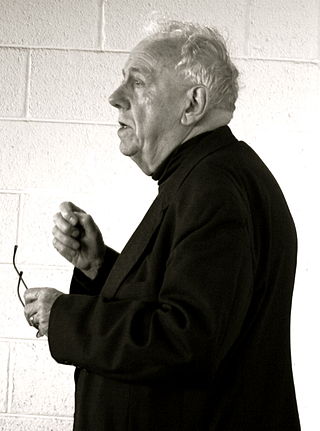Related Research Articles
Axiology is the philosophical study of value. It includes questions about the nature and classification of values and about what kinds of things have value. It is intimately connected with various other philosophical fields that crucially depend on the notion of value, like ethics, aesthetics or philosophy of religion. It is also closely related to value theory and meta-ethics. The term was first used by Eduard von Hartmann in 1887 and by Paul Lapie in 1902.

Ethics or moral philosophy is the philosophical study of moral phenomena. It investigates normative questions about what people ought to do or which behavior is morally right. It is usually divided into three major fields: normative ethics, applied ethics, and metaethics.
Normative ethics is the study of ethical behaviour and is the branch of philosophical ethics that investigates questions regarding how one ought to act, in a moral sense.
Moral realism is the position that ethical sentences express propositions that refer to objective features of the world, some of which may be true to the extent that they report those features accurately. This makes moral realism a non-nihilist form of ethical cognitivism with an ontological orientation, standing in opposition to all forms of moral anti-realism and moral skepticism, including ethical subjectivism, error theory, and non-cognitivism. Moral realism's two main subdivisions are ethical naturalism and ethical non-naturalism.
Analytic philosophy is a broad, contemporary movement or tradition within Western philosophy and especially anglophone philosophy focused on analysis.
Eudaimonia, sometimes anglicized as eudaemonia or eudemonia, is a Greek word literally translating to the state or condition of 'good spirit', and which is commonly translated as 'happiness' or 'welfare'.

Virtue ethics is an approach that treats virtue and character as the primary subjects of ethics, in contrast to other ethical systems that put consequences of voluntary acts, principles or rules of conduct, or obedience to divine authority in the primary role.
In moral philosophy, deontological ethics or deontology is the normative ethical theory that the morality of an action should be based on whether that action itself is right or wrong under a series of rules and principles, rather than based on the consequences of the action. It is sometimes described as duty-, obligation-, or rule-based ethics. Deontological ethics is commonly contrasted to consequentialism, utilitarianism, virtue ethics, and pragmatic ethics. In this terminology, action is more important than the consequences.

Applied philosophy is a branch of philosophy that studies philosophical problems of practical concern. The topic covers a broad spectrum of issues in environment, medicine, science, engineering, policy, law, politics, economics and education. The term was popularised in 1982 by the founding of the Society for Applied Philosophy by Brenda Almond, and its subsequent journal publication Journal of Applied Philosophy edited by Elizabeth Brake. Methods of applied philosophy are similar to other philosophical methods including questioning, dialectic, critical discussion, rational argument, systematic presentation, thought experiments and logical argumentation.

Alasdair Chalmers MacIntyre is a Scottish-American philosopher who has contributed to moral and political philosophy as well as history of philosophy and theology. MacIntyre's After Virtue (1981) is one of the most important works of Anglophone moral and political philosophy in the 20th century. He is senior research fellow at the Centre for Contemporary Aristotelian Studies in Ethics and Politics (CASEP) at London Metropolitan University, emeritus Professor of Philosophy at the University of Notre Dame, and permanent senior distinguished research fellow at the Notre Dame Center for Ethics and Culture. During his lengthy academic career, he also taught at Brandeis University, Duke University, Vanderbilt University, and Boston University.

Robert Merrihew Adams was an American analytic philosopher, who specialized in metaphysics, philosophy of religion, ethics, and the history of early modern philosophy.

After Virtue: A Study in Moral Theory is a book on moral philosophy by the Scottish philosopher Alasdair MacIntyre. MacIntyre provides a bleak view of the state of modern moral discourse, regarding it as failing to be rational, and failing to admit to being irrational. He claims that older forms of moral discourse were in better shape, particularly singling out Aristotle's moral philosophy as an exemplar. After Virtue is among the most important texts in the recent revival of virtue ethics.
Evolutionary ethics is a field of inquiry that explores how evolutionary theory might bear on our understanding of ethics or morality. The range of issues investigated by evolutionary ethics is quite broad. Supporters of evolutionary ethics have claimed that it has important implications in the fields of descriptive ethics, normative ethics, and metaethics.
Philosophy is the study of general and fundamental problems concerning matters such as existence, knowledge, values, reason, mind, and language. It is distinguished from other ways of addressing fundamental questions by being critical and generally systematic and by its reliance on rational argument. It involves logical analysis of language and clarification of the meaning of words and concepts.

Kantian ethics refers to a deontological ethical theory developed by German philosopher Immanuel Kant that is based on the notion that "I ought never to act except in such a way that I could also will that my maxim should become a universal law.” It is also associated with the idea that “[i]t is impossible to think of anything at all in the world, or indeed even beyond it, that could be considered good without limitation except a good will." The theory was developed in the context of Enlightenment rationalism. It states that an action can only be moral if it is motivated by a sense of duty, and its maxim may be rationally willed a universal, objective law.

Geoffrey Sayre-McCord is an American philosopher who works in moral theory, ethics, meta-ethics, the history of ethics and epistemology. He teaches at the University of North Carolina, Chapel Hill. He is also the director of the Philosophy, Politics and Economics Society.
Professor David Simon Oderberg is an Australian philosopher of metaphysics and ethics based in Britain since 1987. He is Professor of Philosophy at the University of Reading. He describes himself as a non-consequentialist or a traditionalist in his works. Broadly speaking, Oderberg places himself in opposition to Peter Singer and other utilitarian or consequentialist thinkers. He has published over thirty academic papers and has authored six books: The Metaphysics of Good and Evil, Opting Out: Conscience and Cooperation in a Pluralistic Society, Real Essentialism, Applied Ethics, Moral Theory, and The Metaphysics of Identity over Time. Professor Oderberg is an alumnus of the Universities of Melbourne, where he completed his first degrees, and Oxford where he gained his D.Phil.
Ethics is the branch of philosophy that examines right and wrong moral behavior, moral concepts and moral language. Ethics or moral philosophy is a branch of philosophy that "involves systematizing, defending, and recommending concepts of right and wrong behavior". The field of ethics, along with aesthetics, concerns matters of value, and thus comprises the branch of philosophy called axiology.
This is a list of philosophical literature articles.
References
- 1 2 3 Reid, Heather (September 2012). Introduction to the Philosophy of Sport (Elements of philosophy). Rowman & Littlefield Publishers. ISBN 978-0742570627.
- ↑ Quinton, Anthony (August 21, 1969) Locker Room Metaphysics. nybooks.com
- 1 2 Kretchmar, R. Scott (November 1996). "Chapter Six: Philosophy of Sport". In Massengale, John D.; Swanson, Richard A. (eds.). The History of Exercise and Sport Science. Human Kinetics Publishers. pp. [181]. ISBN 0873225244.
- ↑ Hardman, Alun; Jones, Carwyn, eds. (2010). Philosophy of Sport. Cambridge Scholars Publishing. ISBN 978-1-4438-2516-0.
- 1 2 Resource Guide to the Philosophy of Sport and Ethics of Sport. Hospitality, Leisure, Sport and Tourism Network, October 2008
- ↑ Shouler, Kenneth (2003) If Life is Finite, Why am I Watching this Damn Game? Philosophy Now
- ↑ Sanzaro, Francis (April 2013). The Boulder: A Philosophy for Bouldering. ISBN 978-0954877996.
- ↑ Graves, H. (1900). "A Philosophy of Sport." The Contemporary Review, vol. 78, 877.
- ↑ Suits, Bernard (1988). "Tricky Triad: Games, Play, and Sport." Journal of the Philosophy of Sport, No. 1:1-9.
- ↑ Meier, Klaus (1988). "Triad trickery: Playing with sport and games." Journal of the Philosophy of Sport, 15.1: 11-30.
- ↑ McNamee, Mike. Ethics and Sport. philosophyofsport.org.uk
- ↑ Kershnar, Stephen & Feit, Neil (2001). The Most Valuable Player. Journal of the Philosophy of Sport 28 (2):193-206.
- ↑ Kershnar, Stephen (2008). Solving the most valuable player problem. Journal of Social Philosophy 39 (1):141–159.
- ↑ Kershnar, Stephen (2011). The Most-Valuable-Player Problem Remains Unsolved. Journal of the Philosophy of Sport 38 (2):167-174.